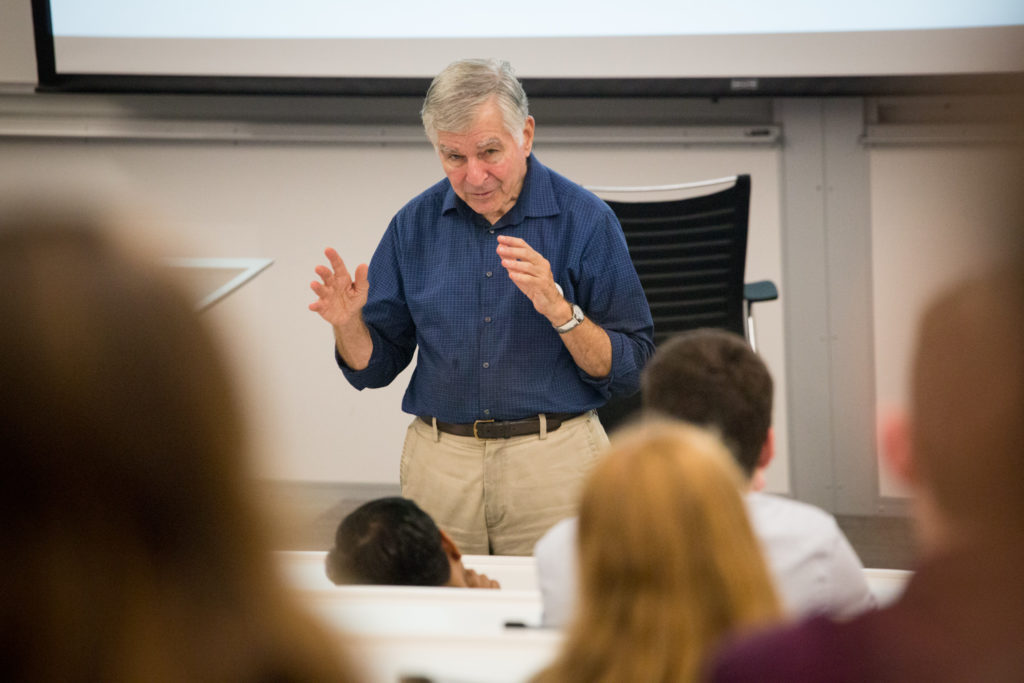By Sumya Mohiuddin, deputy lifestyle editor
Former presidential candidate and current Northeastern professor Michael S. Dukakis stressed the importance of being an active member in politics at a Sept. 23 discussion on the current state of politics.
The Northeastern University College Democrats hosted “A Conversation with Governor Michael Dukakis” where he addressed a crowd of 50 students in East Village. He talked about his background as a governor and student activist.
“Whether it is getting involved in political organizations or doing it yourself, this is something you must do,” Dukakis said.
Born to Greek parents in Brookline, Massachusetts, Dukakis demonstrated his love for advocacy long before he became the Democratic Party’s 1988 presidential nominee against incumbent Republican President George H. W. Bush. As a freshman at Swarthmore College, Dukakis befriended a Nigerian man, Layiwola Shoyinka, who later became one of several black men who were refused a haircut by a local barbershop. Dukakis responded by becoming the campus barber and joining the men in a boycott against the barbershop.
Lauren Rothschild, communications director for the college Democrats and second-year political science major, said it is important to credit the roots a politician grows from.
“I loved hearing the anecdote story about gaining a small leadership role and then rising to become a national politician,” Rothschild said.
Dukakis emphasized the importance of history and said he believes history is a good indicator of how far society has come.
For example, he talked about how “dropout rate” was once an empty phrase because it was normal for a large percentage of kids to never graduate high school. Nowadays, dropout rates are generally low, quantified and analyzed.
“I find history comforting… At least you realize what we’re going through these days is nothing like what they were going through,” Dukakis said.
During a question and answer period, Jack Lovett, a fourth-year history and political science double major, asked if there are ways to raise awareness and make change other than activism. Dukakis said that “activism is activism,” whether going door-to-door or making phone calls.
Dukakis recalled a moment when John Robert Smith, former mayor of Meridian, Mississippi, informed him that former president Barack Obama could have won Mississippi if he went and talked to the people. Dukakis called an influential Obama administration official, but the official believed it would be a waste to go to Mississippi, and Obama lost the state.
Although the call did not yield the results he wanted, the call was an active step toward making a change.
Now in his 27th year at Northeastern, Dukakis said he cherishes the myriad of opportunities to talk with students and encourage them to pursue politics. Rep. Jimmy Gomez (D-Calif.) is one of Dukakis’s former students from when he worked as a visiting professor at University of California, Los Angeles. When Gomez took one of Dukakis’ classes, Dukakis encouraged Gomez to pursue a government job, saying his interest in politics would outweigh his lack of previous experience.
Whether through political organizations or individual efforts, people must make themselves politically aware and active, Dukakis said.
“I’ve seen so much progress over my lifetime because folks like you wouldn’t give it up,” Dukakis said. “People cannot afford to be apolitical.”









